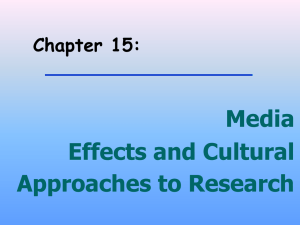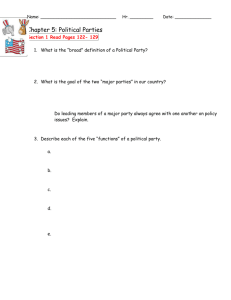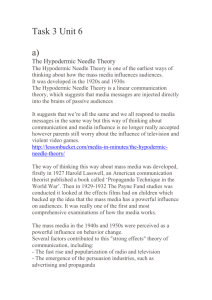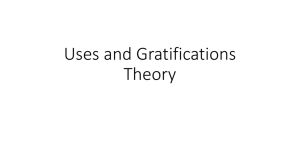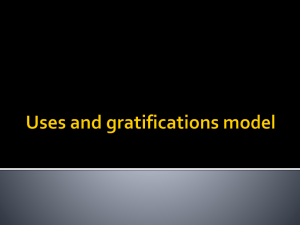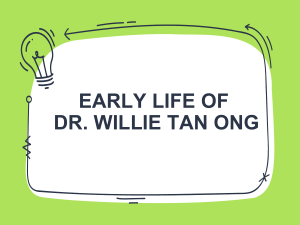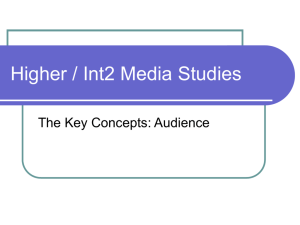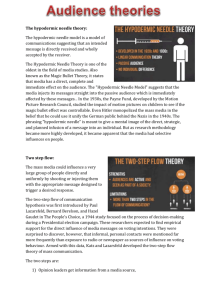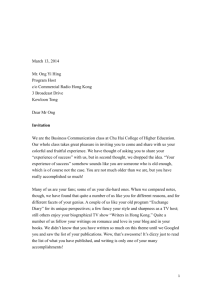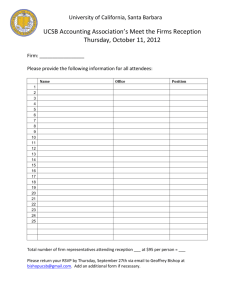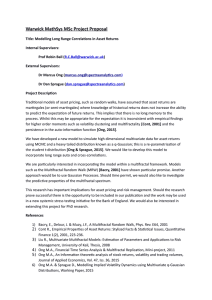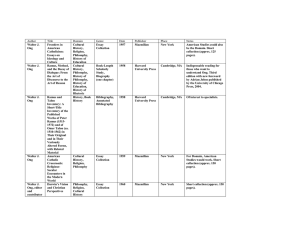Cultural Studies - JakeandCurtGetCultural
advertisement
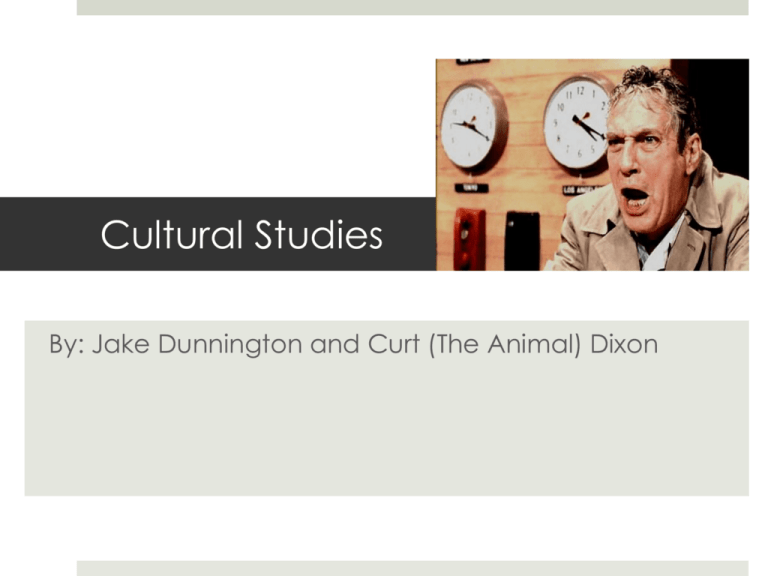
Cultural Studies By: Jake Dunnington and Curt (The Animal) Dixon What is Cultural Studies? In terms of Television. How society's perceptions and beliefs are influenced by what is on the air How media is interpreted. Developed from Ideological Perspective Cultural Studies defines mass media as a mechanism for control Sites for ideological struggle Circulates power relations through hegemony How does it Work? Through Production and Political Economy The system of production determines what will be produced and the audiences targeted products are produced within systems of production - rigid generic codes, formulaic conventions, well-defined ideological boundaries Textual Analysis “Texts” function to produce meaning focusing on Race, Gender, and Class Audience Reception audience reception & appropriation how the audience integrates media into their social life how an audience “reads” the “text” Stuart Hall!! Stuart Hall developed cultural studies in the 70s and 80s Father of Cultural theory Hall’s Theory!! Encoding/Decoding Dominant, or Preferred, Reading - how the director/creator wants the audience to view the media text; Opposition Reading - when the audience rejects the preferred reading, and creates their own meaning of the text; Negotiated Reading - a compromise between the dominant and opposition readings, where the audience accepts parts of the director's views, but has their own views on parts as well. Audience Studies!! What is Audience Studies? Who watches a program? How do they watch it? Why do they watch it? Analysis of that… Walter Ong Walter Ong suggested that the audience is a construct made up by the rhetoric and the rhetorical situation the text is addressing. -Father Walter Jackson Ong, Ph.D. (November 30, 1912 – August 12, 2003), was an American Jesuit priest, professor of English literature, cultural and religious historian and philosopher. Models of Audience Studies!! The hypodermic needle model The intended message is directly received and wholly accepted by the receiver. Two-step flow The people with most access to media, and highest media literacy explain and diffuse the content to others. This is a modern version of the hypodermic needle model. Uses and gratifications People are not helpless victims of mass media, but use the media to get specific gratifications. But There's More!! Reception theory The meaning of a "text" is not inherent within the text itself, but the audience must elicit meaning based on their individual cultural background and life experiences Obstinate audience theory This theory assumes that there is a transactional communication between the audience and the media. The audience actively selects what messages to pay attention to. The Zimmerman-Bauer study found that the audience also participates in the communication by influencing the message.
